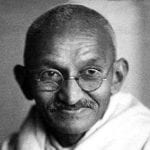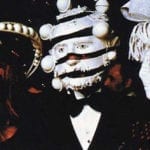 History
History  History
History  Health
Health 10 Everyday Activities That Secretly Alter Consciousness
 History
History Top 10 Historical Disasters Caused by Someone Calling in Sick
 Animals
Animals 10 New Shark Secrets That Recently Dropped
 Movies and TV
Movies and TV 10 Forgotten Realities of Early Live Television Broadcasts
 Technology
Technology 10 Stopgap Technologies That Became Industry Standards
 Weird Stuff
Weird Stuff 10 Wild Facts About Taxidermy That You Probably Didn’t Know
 Travel
Travel 10 Beautiful Travel Destinations (That Will Kill You)
 Miscellaneous
Miscellaneous 10 Modern Marriage Rituals Born from Corporate Branding
 Weird Stuff
Weird Stuff Ten Bizarre Visions of 2026 from Fiction
 History
History 10 “Modern” Problems with Surprising Historical Analogs
 Health
Health 10 Everyday Activities That Secretly Alter Consciousness
 History
History Top 10 Historical Disasters Caused by Someone Calling in Sick
Who's Behind Listverse?

Jamie Frater
Head Editor
Jamie founded Listverse due to an insatiable desire to share fascinating, obscure, and bizarre facts. He has been a guest speaker on numerous national radio and television stations and is a five time published author.
More About Us Animals
Animals 10 New Shark Secrets That Recently Dropped
 Movies and TV
Movies and TV 10 Forgotten Realities of Early Live Television Broadcasts
 Technology
Technology 10 Stopgap Technologies That Became Industry Standards
 Weird Stuff
Weird Stuff 10 Wild Facts About Taxidermy That You Probably Didn’t Know
 Travel
Travel 10 Beautiful Travel Destinations (That Will Kill You)
 Miscellaneous
Miscellaneous 10 Modern Marriage Rituals Born from Corporate Branding
 Weird Stuff
Weird Stuff Ten Bizarre Visions of 2026 from Fiction
10 Curious Controversies About Mahatma Gandhi
Mohandas Karamchand Gandhi—hero of India’s independence through his nonviolence movement and one of the most revered figures in the nation’s history—led a glorious life, one which seekers of peace and wisdom have emulated for decades. He is known as “Mahatma,” or “great soul,” a title reserved only for the most righteous and most venerated of men.
Then again, it’s also worth noting that he was human, and to be human is to err. Over the years, historians and critics have found certain controversial quirks in the man’s life.
10His Sex Life
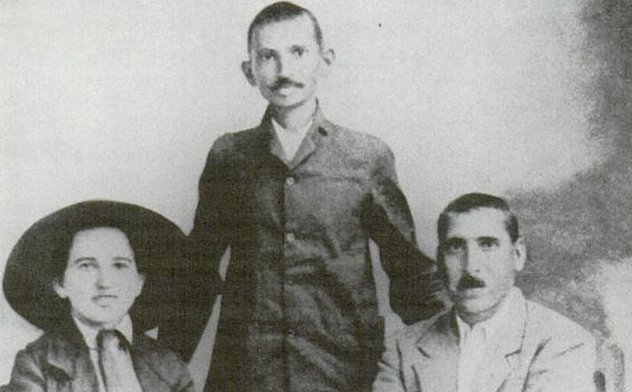
“Was Gandhi gay?” questioned various newspapers across the globe, as private correspondence between him and a former associate, Hermann Kallenbach, surfaced in 2013. Gandhi and Kallenbach had lived together from 1907–1909 in South Africa. Gandhi’s letters to Kallenbach contained such statements as “My dear Lower House,” addressing Kallenbach, and were signed “Sinly yours, Upper House.”
Critics, of course, noted that previous stories regarding Gandhi’s sexual antics figured almost scandalously in historical and political circles. The man was notorious for sleeping with other women. In many cases, these women were either married, extremely young, or both. Girls like Manuben, his 18-year-old grandniece, and Abha, the 16-year-old wife of his grandnephew, slept naked beside him. On some nights, he would have both of them fully nude in his bed. In a way, this let Gandhi practice self-control. Yet some have gone as far to suggest that Gandhi forbade other men to sleep with their wives while doing so himself.
Opinions vary as to how to view these acts. Were they acceptable, or were they simply perversions of a dirty old man? Did Gandhi use his position to sexually exploit young women?
9A Very Odd Husband
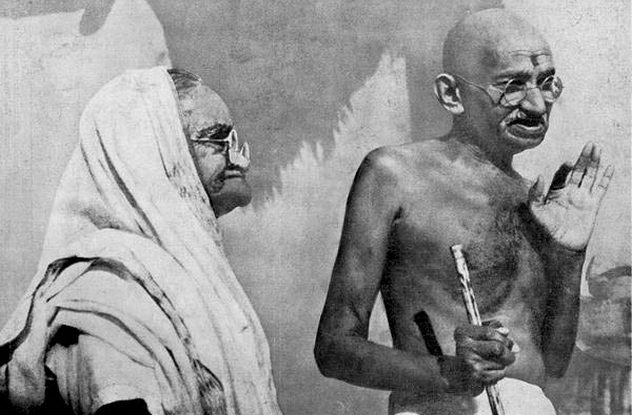
As mentioned, Gandhi’s sexual perversions were, according to him, a means to resist carnal temptation. However, he also practiced celibacy in his marriage. Kasturba, his wife of over two decades, was denied sex for years after bearing his children. Critics have also pointed out how Gandhi had mistreated his wife. In some cases, he had forbidden Kasturba from keeping gifts that were meant for her. Earlier in their married life, Gandhi was said to have compared his wife to a cow. Gandhi said he could not bear to look at Kasturba’s face, because it gave the impression of a “meek cow” trying to say something.
In 1943, when Kasturba had contracted an illness and was hemorrhaging badly, Gandhi allegedly wrote to her: “My struggle is not merely political. It is religious and therefore quite pure. It does not matter much whether one dies in it or lives. I hope and expect that you will also think likewise and not be unhappy.” Gandhi also forbade doctors from giving his wife penicillin, arguing that it was a foreign medicine and stating that: “If God wills it, he will pull her through.” God did not—his wife died on February 22, 1944, after months of suffering.
However, when Gandhi contracted malaria, he did resist the idea of taking quinine as a medicine, if only for a time. As a last resort, however, he had to allow doctors to administer a cure just to survive. One of his great-grandsons, Tushar Gandhi, explains that critics might have taken some of the events out of context and that Gandhi simply did not wish to have penicillin administered to his wife as she was a strict vegetarian.
8Treatment Of His Own Son
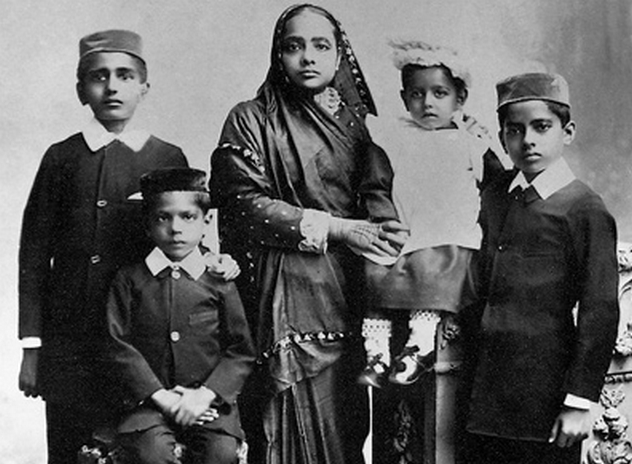
Gandhi had a bitter quarrel with his eldest son Harilal. The young man wished to have a life of his own, which the great Mahatma could not comprehend. He wanted his children to follow in his footsteps against their own wishes. To Gandhi, his eldest son reflected his own lack of discipline and direction in life when he had been younger. To Harilal, his father’s ideology was a “delusion,” a “miscalled enlightenment.” Harilal had even written to the aforementioned Hermann Kallenbach, telling him of how his father had simply forgotten that he had a family.
Harilal would later convert to Islam and denounce his father in public; meanwhile, Gandhi saw fit to disown Harilal, even instructing other family members not to share anything with his son. When a younger son gave his elder brother some money, Gandhi practically banished him. Despite the pleas of family members for the two to mend their relationship, it was not to be. After his father’s assassination, an unkempt Harilal joined the funeral procession. It was said that he was in such a bad state that, at first, none of his family recognized him. As grim as it sounds, Harilal followed in his father’s footsteps—to the grave—dying a drunkard on June 18, 1948, just months after his father.
More stories of the strained relationship between father and son have persisted. One such story involved Gandhi accusing Harilal of raping his own daughter in 1935 and subsequently saying that he would rather see his son die than drink alcohol. Of course, this happened decades after Harilal had already severed his ties with his family and the relationship had reached a boiling point. The aforementioned Tushar Gandhi claims that, again, the media and critics have taken everything out of context. Harilal did not rape his daughter but rather his sister-in-law. It’s hard to see how that excuses Harilal’s actions, so that one is a point in Gandhi’s favor. As for wishing death upon Harilal, Gandhi was merely saying that he would rather see his son embrace death than use alcohol as a rather dubious form of treatment.
7Views On Education And Progress
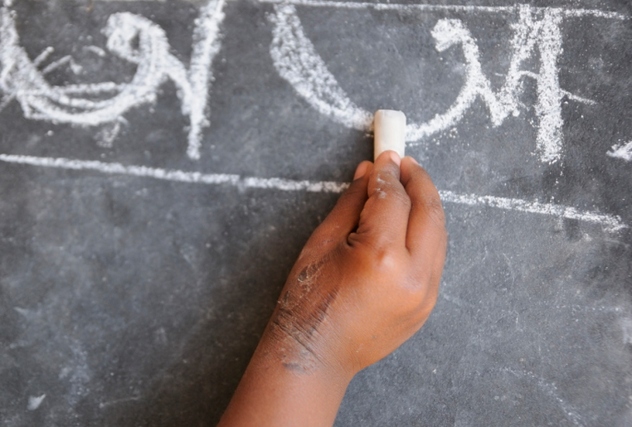
The gravest disagreement Gandhi had with his son Harilal was on the subject of education. Harilal wanted to be a barrister, just like his father. Gandhi’s concept of “following in his footsteps” was less about his old profession and more about his outlook later in life. Indeed, Gandhi had denied education to his children because of his political opinions.
Gandhi could have sent his children to exclusive schools that would have readily accepted them due to Gandhi’s social standing. He could have also enrolled them in schools run by Christian missionaries. Instead, he simply rejected those ideas, because he believed that “young children should not be separated from their parents.” He also did not want his sons admitted to schools that had previously rejected other Indian children. Similarly, he viewed such educational institutions as being biased toward the West and therefore detrimental to his pro-independence stance.
Gandhi also espoused a concept of “unlearning,” stating in 1909 that “India’s salvation consists of unlearning what she has learnt during the past fifty years. The railways, telegraphs, hospitals, lawyers, doctors, and such like have all to go.” Jawaharlal Nehru, who became India’s first Prime Minister in 1947, vehemently disagreed, as he disliked Gandhi’s “praise of poverty and suffering.” Gandhi’s socialist leanings were, in a sense, rooted in cultural heritage and tradition, but this too might have been an extreme.
6Was He To Blame For The Partition Of India And Pakistan?
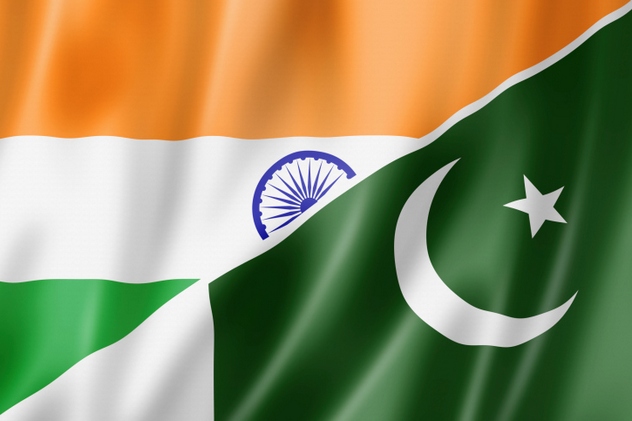
Various critics and historians believe that the woes India, Pakistan, and Bangladesh have experienced for the past decades can be blamed solely on Mahatma Gandhi. This is due to his attitude of appeasement and believing that Hindus and Muslims could find a common ground and be reconciled. It was a laudable effort, but some critics believe that such actions were a “boomerang,” letting Muslims come into power and allowing Muhammad Ali Jinnah to claim Pakistan in 1947.
An even more radical view by anti-Muslim critics is that Gandhi’s friendly overtures to Muslims were due to a severe beating he had received years prior. In 1908, an angry mob left him “lying on the floor, looking half-dead . . . his face cut right open through the lip.” Allegedly, this caused him great fear and anxiety, which is why he no longer wished for India to put up a brave fight in the face of partition.
Finally, a rather far-fetched view held by a few conspiracy theorists is that Mahatma Gandhi was an Illuminati pawn. According to this interwoven tale, Gandhi was a Freemason employed by MI6, and his main role was to set up India’s partition. This event was supposed to culminate in a series of conflicts whereby the “New World Order” would set up the “world government” to restore peace. Sound familiar?
5Racial Discrimination
A statue to honor Mahatma Gandhi’s contributions to South African society, unveiled in Johannesburg in 2003, triggered a wave of controversy. It was supposed to have represented Gandhi’s opposition to racism and prejudice in the country during his stay there from the late 1800s to the early 1900s. Instead, critics were reminded of the many times Gandhi had actually made racist remarks in public.
Gandhi addressed a public gathering in 1896, saying that Europeans sought to degrade Indians to the level of “raw kaffir”—natives of Africa. “Kaffir” is also a derogatory term considered worse than the N-word. To Gandhi, the only occupation native Africans knew was hunting, their only ambition was to collect cattle to buy a wife, and their only contentment in life was to pass it in “indolence and nakedness.”
Gandhi also considered the natives incredibly lazy, thinking that they were not as hardworking as Indians and that they pretty much avoided work completely. Gandhi fought a prejudicial registration of Indian workers, though he was accepting of the same happening to black people. Gandhi, in many publications, exalted the virtues of his fellow Indians and humiliatingly derided black people at every turn. Gandhi stated that natives gave little benefit to the country and owed their prosperity to Indians. Similarly, he believed that black people were hustling and abusing good citizens, whereas the “better-class Indians” were a lot more respectable. You can read more about such highly controversial statements here.
4The Bambatha Rebellion
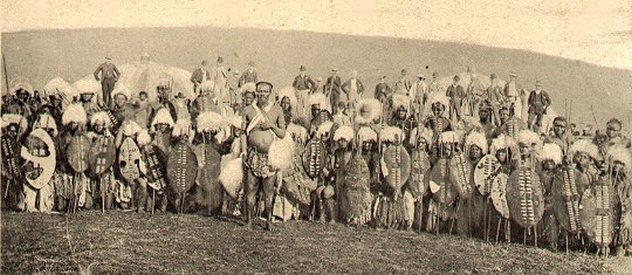
One additional event provides us with a glimpse into the past: the Bambatha Rebellion of 1906. Zulus protested against the taxes imposed by the British after the end of the Boer War. The British responded with a massacre of thousands of Zulus. Between 3,000–4,000 Zulus were killed, 7,000 were imprisoned, and 4,000 were viciously flogged. British losses amounted to 25 men.
Gandhi’s role during the conflict was a highly controversial one. Prior to actively recruiting volunteers to fight in “no man’s land” during World War I, he had actually pestered the British to recruit Indians as part of the army against the Zulus. This was partly due to his aim of gaining favor with the British overlords and, in effect, helping to legitimize the citizenship of Indians. Critics also insisted that this was motivated by racism. Gandhi commanded a detachment of volunteers who bore the wounded on stretchers, although he felt that this activity was a waste of men. Gandhi wanted Indians to have the “opportunity of a thorough training for actual warfare.”
Perhaps it’s also worth adding that this event may have changed Gandhi for the better. Upon seeing the damage inflicted by the British on the hapless Zulus, his compassion may have led him to reassess what his life had been until then.
3The Death Of William Francis Doherty

The controversial book Gandhi: Behind the Mask of Divinity, describes a certain incident involving Gandhi and an American widow, Annette Doherty, wife of engineer William Francis Doherty. She went to claim the body of her husband, slain during a riot of Gandhi’s supporters on November 19, 1921, and subsequently met with the famed political leader. During that fateful day, Mr. Doherty was on his way to work when rioters suddenly pounced on him, gouging out his eyes and leaving him for dead. For over an hour and a half, Doherty lay on the street under the scorching sun, blinded and dying, before he was taken to a hospital where he died within minutes.
Later on, Mrs. Doherty’s meeting with Gandhi revealed a scandalous yet highly disputed turn of events. According to her deposition, she had initially met with one of Gandhi’s representatives who was concerned about the American public finding out about the killing. The emissary allegedly asked for her price—how much did she want to keep her silence about the matter. Later on, when the widow met with Gandhi himself, he told her that he and his movement had the sympathy of the American public and that he did not wish for more details to emerge that could lead to prejudicial treatment.
2He Suggested Surrendering To Invaders And Leaving India To Anarchy
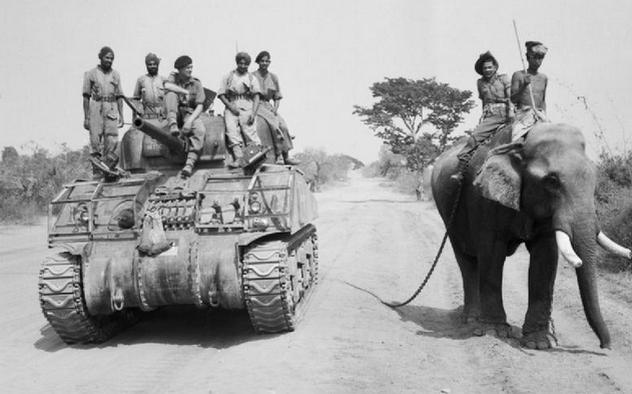
The forgotten battles of Imphal and Kohima were largely uncelebrated in India despite the bravery of Indians in defending their homeland against the Japanese onslaught. This was due to World War II still being perceived as India fighting for a European power rather than for its own survival. Gandhi played his part in solidifying this opinion for decades to come. His bold move during the darkest years of World War II was to launch a massive civil disobedience campaign for the British to “Quit India.” Never mind that the Japanese were already at their doorstep; the nation still had to be rid of British rule.
Gandhi, much like he had done during his wife’s death throes, preferred that India’s fate was left to God. If it could not be left to a divine power, then Gandhi preferred that it was left to anarchy instead. Gandhi felt India could eventually sort out its problems. Critics over the years have become aghast at this view, as Gandhi was perhaps out of touch with the reality of how much death and destruction anarchy would bring to the country.
Gandhi felt that the Japanese should just occupy as much of India as they wished. He also wanted fellow Indians to show nonviolence and noncooperation so as to make the invaders feel unwanted. Surrender in the face of the enemy was not limited to the Japanese; Gandhi also said that Britain should surrender to the Nazis. He claimed that nonviolence should have extended so far as to invite “Herr Hitler and Signor Mussolini” to take possession of that “beautiful island with its many beautiful buildings.”
1Mass Suicide Of Jews
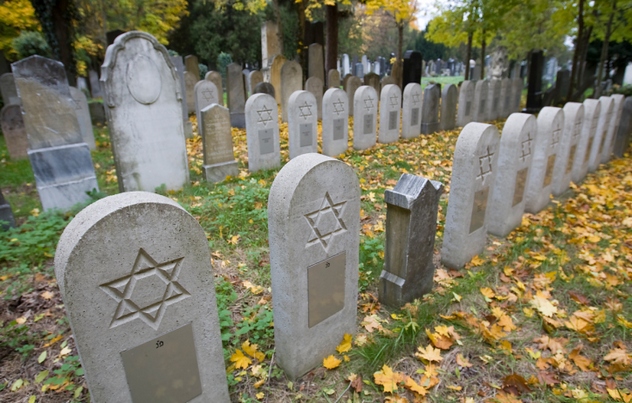
How do we draw the line between honorable nonviolence movement and willful and senseless death?
In his letters to Adolf Hitler, Gandhi beseeched the madman to avoid going to war. Gandhi addressed the Fuhrer as “Dear Friend,” using kindness and compassion to let Hitler know the error of his ways. He was optimistic, but as some critics have pointed out, it bordered on utter foolishness. It was also the most extreme form of nonviolence that Gandhi had wanted the Jews of Europe to practice. He believed that civil disobedience against Hitler would have strengthened their cause; it would have “aroused the world.”
How far should it have gone?
A biographer asked Gandhi whether the Jews should have committed mass suicide. Gandhi said, “Yes, that would have been heroism.” Despite knowledge of the atrocities committed during the Holocaust, Gandhi responded by saying that “the Jews should have willingly offered themselves to the butcher’s knife; they should have thrown themselves into the sea from cliffs.” As to why such a horrible deed was necessary, Gandhi replied that, if the Jews had followed his advice, their deaths would have been more significant.
+The Snub For The Nobel Peace Prize
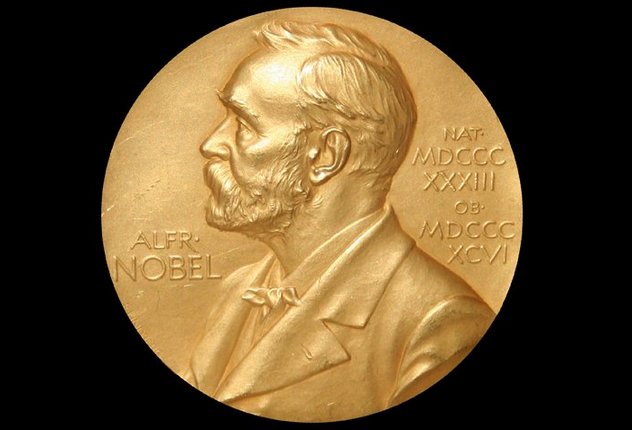
Mahatma Gandhi was nominated five times for the Nobel Peace Prize—in 1937, 1938, 1939, 1947, and 1948. He was not awarded on those five occasions. Reasons abound as to why the prize had eluded him for so long. The committee was said to have concluded that “he was too much of an Indian nationalist,” or that he was “suddenly an ordinary politician.” A more detailed assessment stated that Gandhi was “no real politician or proponent of international law, not primarily a humanitarian relief worker and not an organiser of international peace Congress.”
In 1948, the year Gandhi was assassinated, the Nobel Committee declared that there would be no recipient of the award that year for “there was no suitable living candidate.” The very wording of that statement was taken to mean that Gandhi was the de facto winner that year. Of course, the award could have been given to him posthumously within that year or in succeeding years, but the committee did not wish to break precedent at the time.
Jo considers Gandhi one of the greatest figures in India’s rich history. But have his actions been whitewashed over time, or was it simply a case of being human, prone to mistakes no matter how “saintly” one is perceived? Let Jo know via email or in the comments section.
